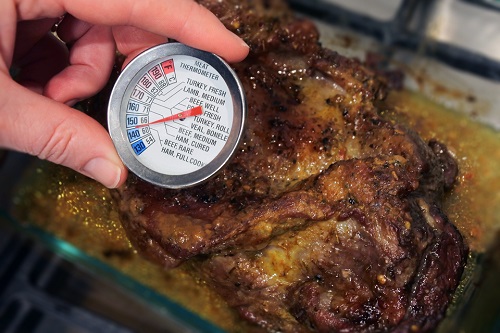Food Safety Tips

Food safety is important for people with chronic kidney disease (CKD), including those on dialysis. Chronic kidney disease weakens the immune system, making you more susceptible to foodborne illness. Every year, an estimated 1 in 6 Americans get sick from foodborne illness. Following proper food safety measures can help prevent foodborne illnesses caused by bacteria, viruses and parasites found in contaminated food or beverages. Protect yourself and your loved ones with these food safety tips.
Work with Clean Hands and Surfaces
Be sure your hands are clean before you prepare food. Wash your hands for 20 seconds with warm water and soap before and after handling raw meats. Work surfaces like utensils, cutting boards and countertops should always be cleaned before and after use.
Keep Raw Foods Separate
It’s important to separate raw meat, poultry, seafood and eggs from ready-to-eat foods. Use separate cutting boards for these foods and keep raw meat away from other foods in your shopping cart and refrigerator.
Monitor Food Temperatures When Cooking
Cooking food to the correct internal temperature is an important part of food safety. Use a food thermometer to check the internal temperature of cooked food. The correct internal temperatures for various foods are listed below.
- 145° F for whole cuts of beef, pork, veal, and lamb (allow meat to rest for 3 minutes before carving or eating)
- 160° F for ground meats such as beef and pork
- 165° F for all poultry, including ground turkey and chicken
- 165° F for leftovers and casseroles
- 145° F for fish or cook until flesh is opaque (1)
Store and Thaw Food Safely
Chilling food after it’s been cooked is also important. Refrigerate perishable food within 2 hours. Keep the refrigerator temperature at 40° F or lower. Safely thaw frozen foods in the refrigerator, in cold water or in the microwave. Never thaw foods on the counter, because bacteria multiply quickly in the parts of the food which reach room temperature.
Reference:
- CDC Key Fact about Food Poisoning, accessed 7/26/2021.
- https://www.foodsafety.gov/food-safety-charts/safe-minimum-cooking-temperature, accessed 7/26/2021.
Additional Kidney Diet Resources
Visit DaVita.com and explore these diet and nutrition resources:
- DaVita Food Analyzer
- DaVita Dining Out Guides
- Today’s Kidney Diet Cookbooks
- DaVita Kidney-Friendly Recipes
- Diet and Nutrition Articles
- Diet and Nutrition Videos
- Kidney Smart® Virtual Classes
This article is for informational purposes only and is not a substitute for medical advice or treatment. Consult your physician and dietitian regarding your specific diagnosis, treatment, diet and health questions.

Recent Comments